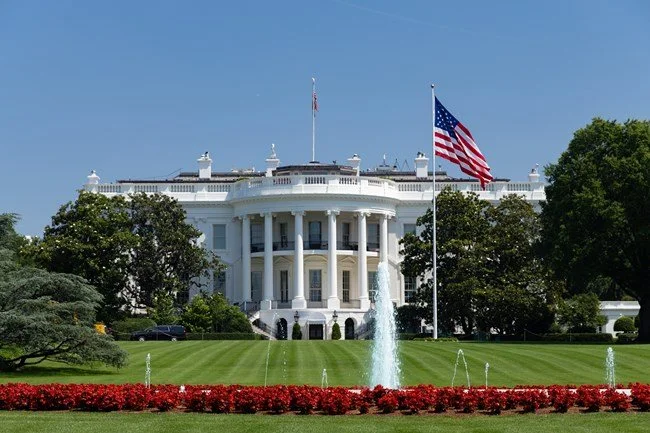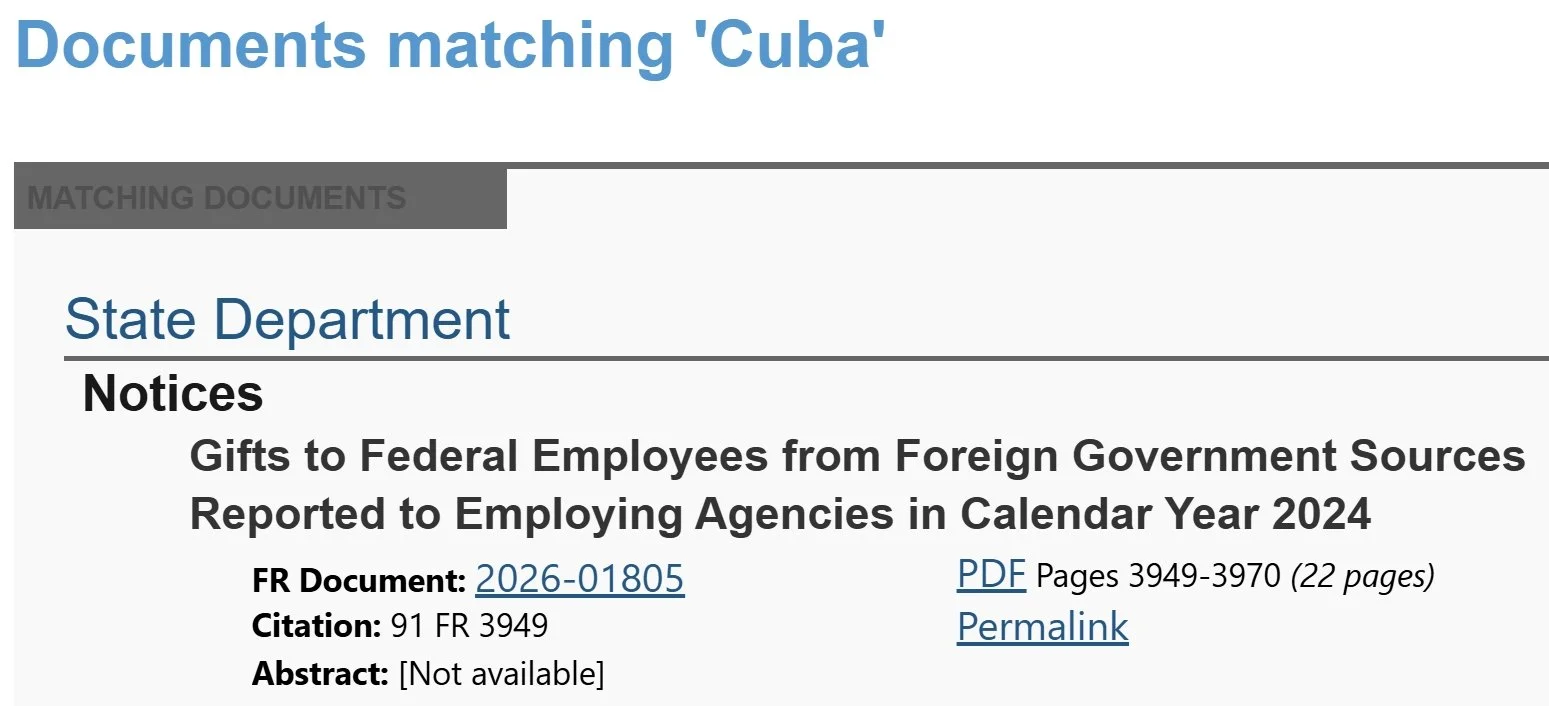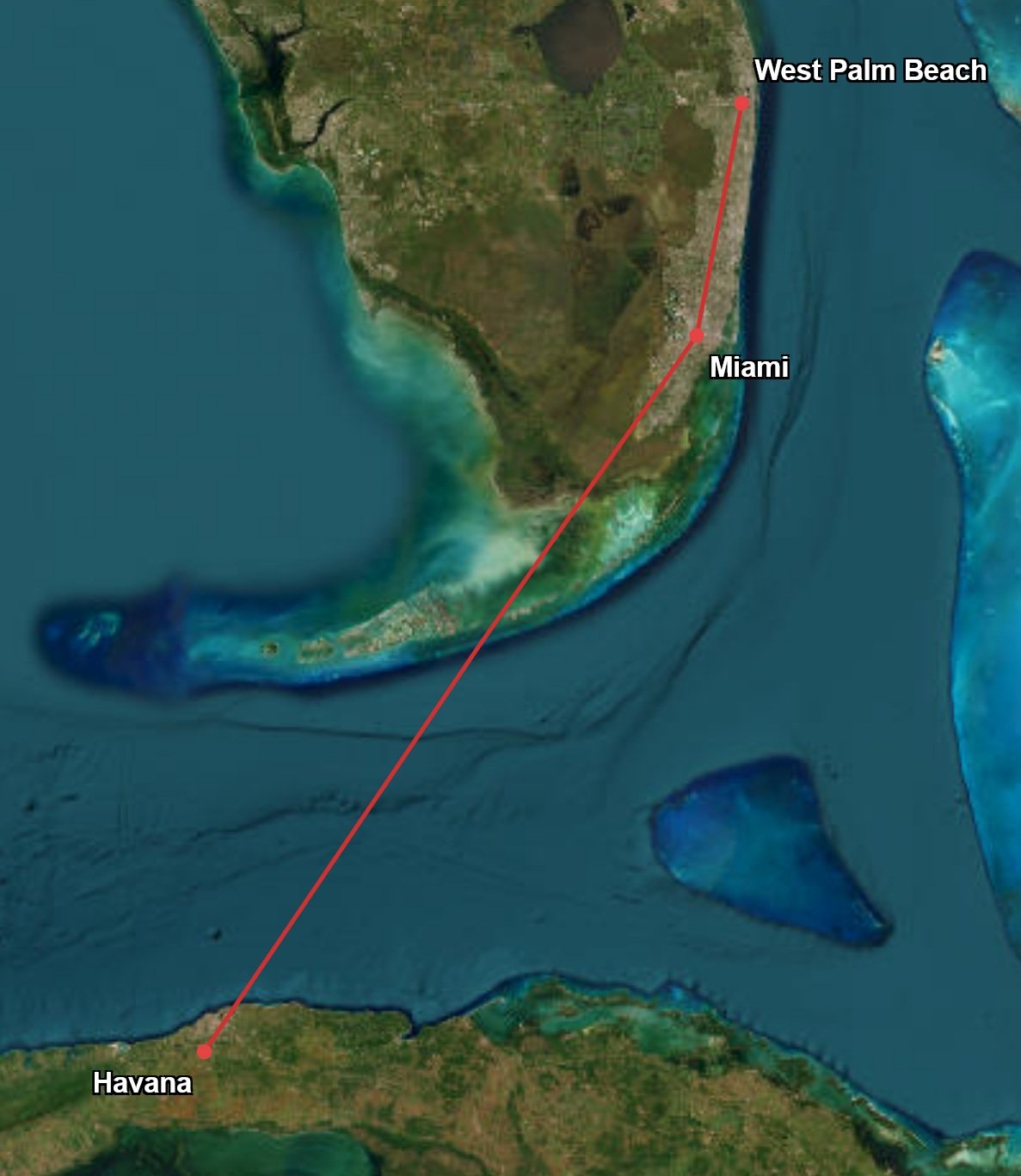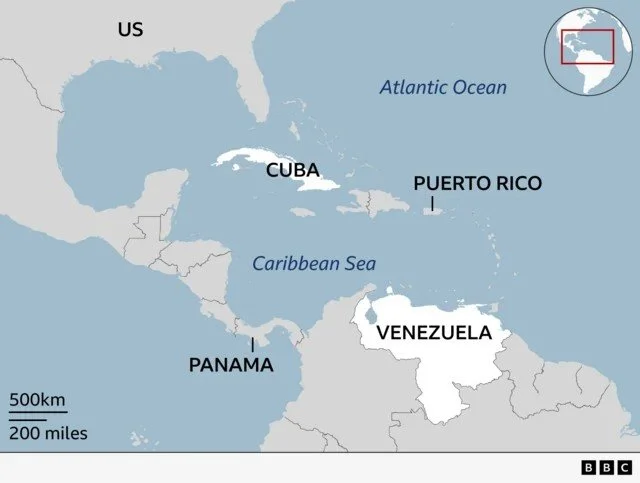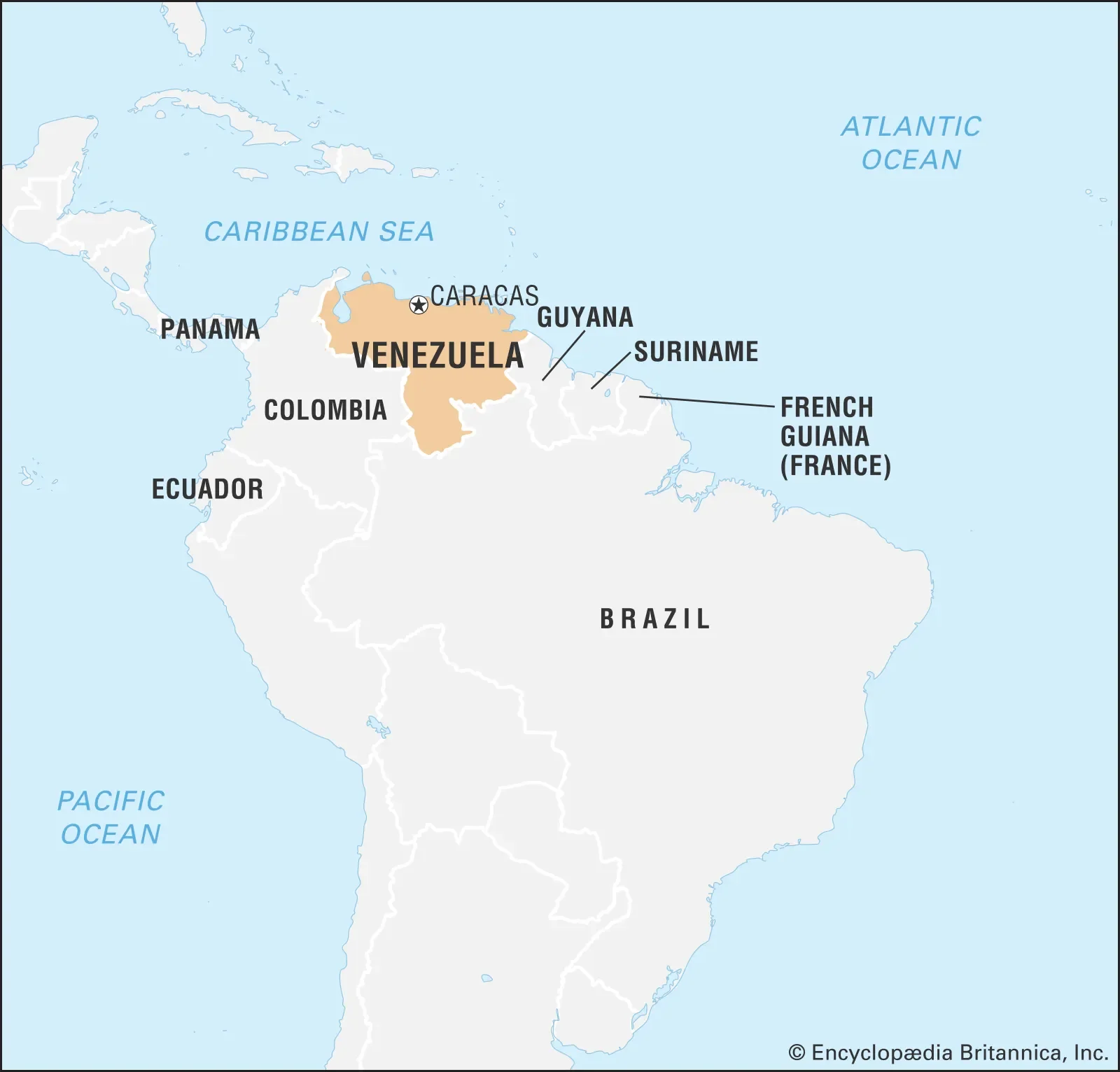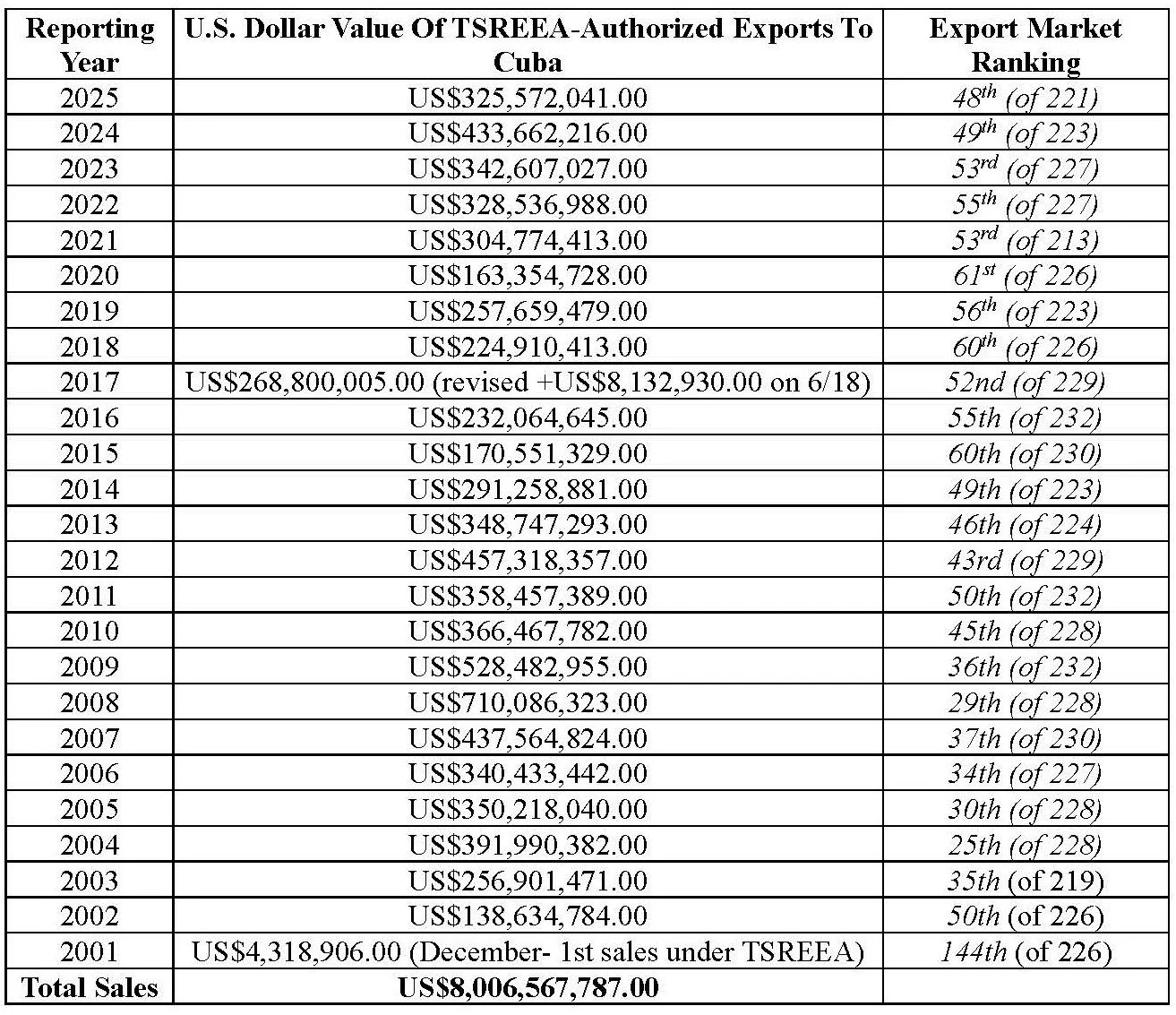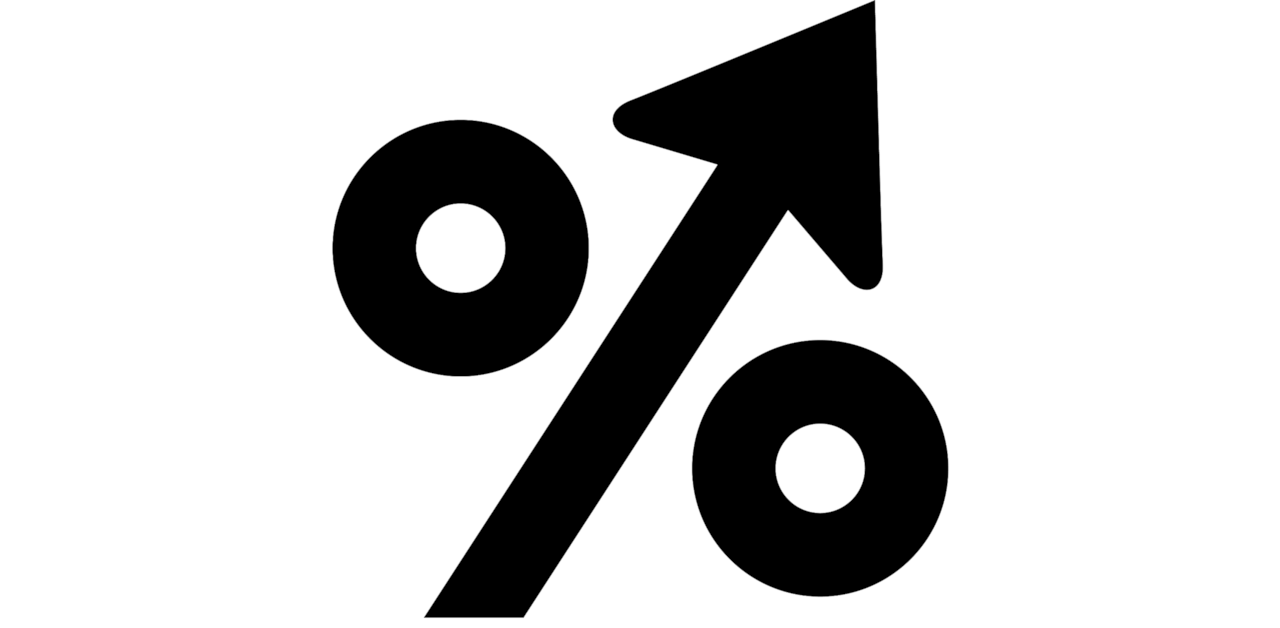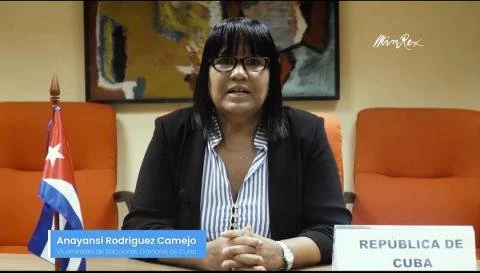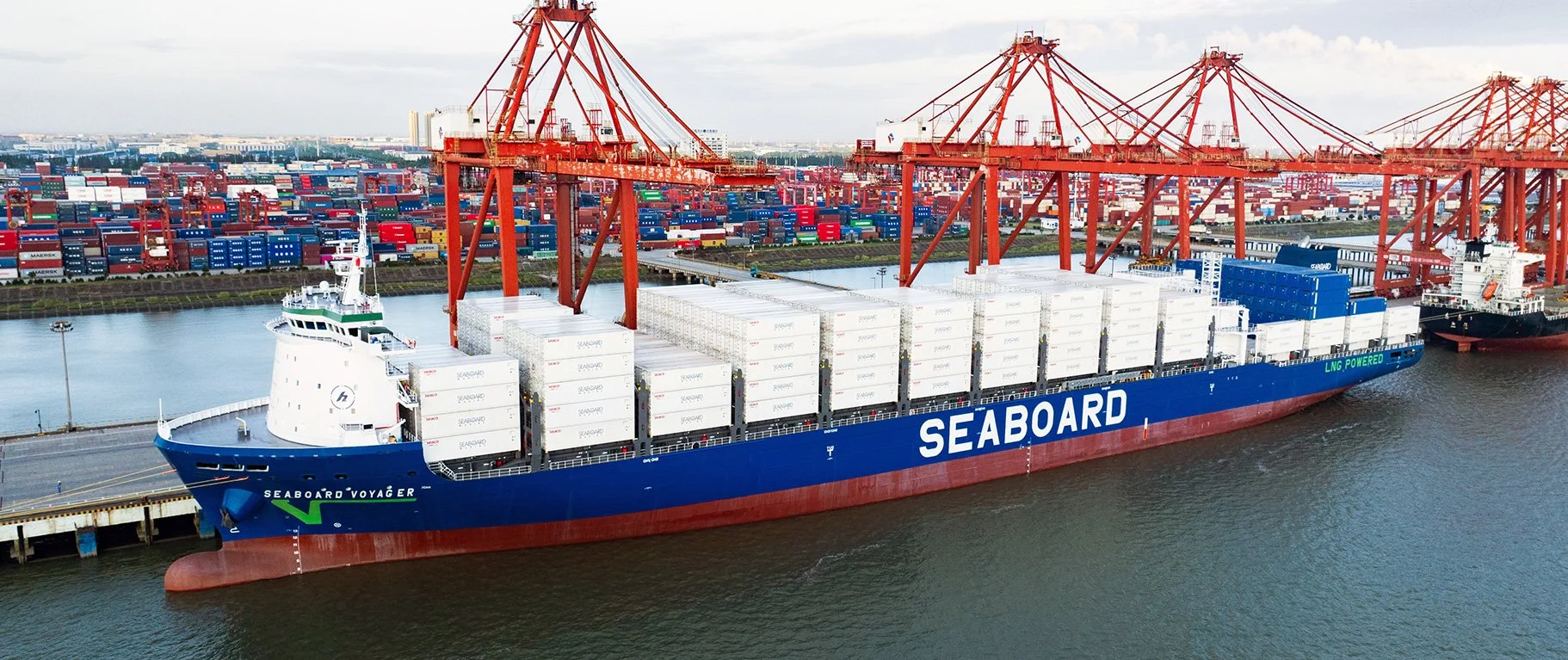White House Issues Executive Order Addressing Threats To The United States By The Government Of Cuba
/EXECUTIVE ORDER
ADDRESSING THREATS TO THE UNITED STATES BY THE GOVERNMENT OF CUBA
By the authority vested in me as President by the Constitution and the laws of the United States of America, including the International Emergency Economic Powers Act (50 U.S.C. 1701 et seq.) (IEEPA), the National Emergencies Act (50 U.S.C. 1601 et seq.) (NEA), and section 301 of title 3, United States Code, I hereby determine and order:
Section 1. National Emergency. As President of the United States, I have an imperative duty to protect the national security and foreign policy of this country. I find that the policies, practices, and actions of the Government of Cuba constitute an unusual and extraordinary threat, which has its source in whole or substantial part outside the United States, to the national security and foreign policy of the United States.
The Government of Cuba has taken extraordinary actions that harm and threaten the United States. The regime aligns itself with -- and provides support for -- numerous hostile countries, transnational terrorist groups, and malign actors adverse to the United States, including the Government of the Russian Federation (Russia), the People's Republic of China (PRC), the Government of Iran, Hamas, and Hezbollah. For example, Cuba blatantly hosts dangerous adversaries of the United States, inviting them to base sophisticated military and intelligence capabilities in Cuba that directly threaten the national security of the United States. Cuba hosts Russia's largest overseas signals intelligence facility, which tries to steal sensitive national security information of the United States. Cuba continues to build deep intelligence and defense cooperation with the PRC. Cuba welcomes transnational terrorist groups, such as Hezbollah and Hamas, creating a safe environment for these malign groups so that these transnational terrorist groups can build economic, cultural, and security ties throughout the region and attempt to destabilize the Western Hemisphere, including the United States. Cuba has long provided defense, intelligence, and security assistance to adversaries in the Western Hemisphere, attempting to thwart United States and international sanctions designed to enforce the stability of the region, uphold the rule of law, and safeguard the national security and foreign policy of the United States. Cuba continues to try to thwart United States efforts to address threats to the United States posed by hostile countries, transnational terrorist groups, and malign actors, including in the Western Hemisphere.
Further, contrary to the interests and foreign policy of the United States, the Cuban communist regime supports terrorism and destabilizes the region through migration and violence. The communist regime persecutes and tortures its political opponents; denies the Cuban people free speech and press; corruptly profits from their misery; and commits other human-rights violations. For example, families of political prisoners face retaliation for peacefully protesting the improper confinement of their loved ones. Cuban authorities harass worshippers, block free association by civil society organizations, prohibit free press, and deny the ability to speak freely, including on the internet. The Cuban regime continues to spread its communist ideas, policies, and practices around the Western Hemisphere, threatening the foreign policy of the United States.
The United States has zero tolerance for the depredations of the communist Cuban regime. The United States will act to protect the foreign policy, national security, and national interests of the United States, including by holding the Cuban regime accountable for its malign actions and relationships, while also remaining committed to supporting the Cuban people's aspirations for a free and democratic society.
I find that the policies, practices, and actions of the Government of Cuba directly threaten the safety, national security, and foreign policy of the United States. The policies, practices, and actions of the Government of Cuba are designed to harm the United States and support hostile countries, transnational terrorist groups, and malign actors that seek to destroy the United States. The policies, practices, and actions of the Government of Cuba are also repugnant to the moral and political values of democratic and free societies and conflict with the foreign policy of the United States to encourage peaceful change in Cuba and to promote democracy, the principle of free expression and press, the rule of law, and respect for human rights throughout the world.
NOW, THEREFORE, I, DONALD J. TRUMP, President of the United States of America, find that the situation with respect to Cuba constitutes an unusual and extraordinary threat, which has its source in whole or substantial part outside the United States, to the national security and foreign policy of the United States and hereby declare a national emergency with respect to that threat.
To deal with the national emergency declared in this order, I determine that it is necessary and appropriate to establish a tariff system, as described below. Under this system, an additional ad valorem duty may be imposed on imports of goods that are products of a foreign country that directly or indirectly sells or otherwise provides any oil to Cuba. In my judgment, the tariff system, as described below, is necessary and appropriate to address the national emergency declared in this order.
Sec. 2. Imposition of Tariffs. (a) Beginning on the effective date of this order, an additional ad valorem rate of duty may be imposed on goods imported into the United States that are products of any other country that directly or indirectly sells or otherwise provides any oil to Cuba, in accordance with subsections (b) and (c) of this section. (b)(i) The Secretary of Commerce, in consultation with the Secretary of State and any senior official the Secretary of Commerce deems appropriate, shall determine whether, after the effective date of this order, a foreign country directly or indirectly sells or otherwise provides any oil to Cuba. After the Secretary of Commerce finds that a foreign country directly or indirectly sells or otherwise provides any oil to Cuba, the Secretary of Commerce shall inform the Secretary of State of his finding, including any information relevant to that finding. (ii) The Secretary of Commerce may issue rules, regulations, and guidance necessary or appropriate to implement this order. The Secretary of Commerce may also make any other determinations or take any other actions necessary or appropriate to implement this order. (c)(i) After the Secretary of Commerce makes an affirmative finding pursuant to subsection (b)(i) of this section and informs the Secretary of State of his finding, the Secretary of State, in consultation with the Secretary of the Treasury, the Secretary of Commerce, the Secretary of Homeland Security, and the United States Trade Representative, shall determine whether and to what extent an additional ad valorem rate of duty should be imposed on goods that are products of the foreign country found to directly or indirectly sell or otherwise provide any oil to Cuba. (ii) If the Secretary of State determines that an additional ad valorem rate of duty should be imposed on goods that are products of the country found to directly or indirectly sell or otherwise provide any oil to Cuba, the Secretary of State shall inform me of his recommendation, and the Secretary of Commerce shall inform me of his finding related to that recommendation. I will then consider the recommendation and finding, among other relevant things, in determining whether and to what extent to impose an additional ad valorem rate of duty on goods that are products of the country in question. (iii) The Secretary of State may issue rules, regulations, and guidance necessary or appropriate to implement this order. The Secretary of State may also make any other determinations or take any other actions necessary or appropriate to implement this order.
Sec. 3. Modification Authority. (a) To ensure that the national emergency declared in this order is dealt with, I may modify this order, including in light of additional information, recommendations from senior officials, or changed circumstances. (b) Should a foreign country retaliate against the United States in response to this order or any action taken pursuant to this order, I may modify this order or actions taken pursuant to this order to ensure the efficacy of this order and the actions taken pursuant to this order to deal with the national emergency declared in this order. (c) Should the Government of Cuba or another foreign country affected by this order take significant steps to address the national emergency declared in this order and align sufficiently with the United States on national security and foreign policy matters, I may modify this order.
Sec. 4. Monitoring and Recommendations. (a) The Secretary of State, in consultation with any senior official the Secretary of State deems appropriate, shall monitor the circumstances involving the national emergency declared in this order. The Secretary of State shall inform me of any circumstance that, in his opinion, might indicate the need for further Presidential action to deal with the national emergency declared in this order. (b) The Secretary of State, in consultation with the Secretary of the Treasury, the Secretary of Commerce, the Secretary of Homeland Security, the United States Trade Representative, and any other senior official the Secretary of State deems appropriate, shall recommend to me additional action, if necessary, if the actions in this order or taken pursuant to this order are not effective in dealing with the national emergency declared in this order. (c) The Secretary of Commerce shall monitor whether a foreign country directly or indirectly sells or otherwise provides any oil to Cuba. The Secretary of Commerce shall continue such monitoring after a foreign country has been found to do so.
Sec. 5. Delegation. Consistent with applicable law, the Secretary of State and the Secretary of Commerce are directed and authorized to take all actions necessary to implement and effectuate this order -- including through temporary suspension or amendment of regulations or through notices in the Federal Register and by adopting rules, regulations, or guidance -- and to employ all powers granted to the President, including by IEEPA, as may be necessary to implement this order. The head of each executive department and agency (agency) is authorized to and shall take all appropriate measures within the agency's authority to implement this order. The head of each agency may, consistent with applicable law, including section 301 of title 3, United States Code, redelegate the authority to take such appropriate measures within the agency.
Sec. 6. Reporting Directives. The Secretary of State, in consultation with any senior official he deems appropriate, is hereby authorized and directed to submit recurring and final reports to the Congress on the national emergency declared in, and authorities exercised by, this order, consistent with section 401 of the NEA (50 U.S.C. 1641) and section 204(c) of IEEPA (50 U.S.C. 1703(c)).
Sec. 7. Definitions. For the purposes of this order: (a) The term "oil" means crude oil or petroleum products. (b) The term "indirectly" includes selling to or otherwise providing oil to Cuba through intermediaries or third countries, with knowledge that such oil may be provided to Cuba, as determined by the Secretary of Commerce. (c) Cuba through intermediaries or third countries, with knowledge that such oil may be provided to Cuba, as determined by the Secretary of Commerce. The term "Cuba" means the territory of Cuba and any other territory or marine area, including the exclusive economic zone and continental shelf, over which the Government of Cuba claims sovereignty, sovereign rights, or jurisdiction, provided that the Government of Cuba exercises partial or total de facto control over the area or derives a benefit from economic activity in the area pursuant to international agreements. (d) The term "Government of Cuba" includes the Government of Cuba, any political subdivision, agency, or instrumentality thereof, and any person owned or controlled by, or acting for or on behalf of, the Government of Cuba.
Sec. 8. Effective Date. This order is effective at 12:01 a.m. eastern standard time on January 30, 2026.
Sec. 9. Interaction With Other Presidential Actions. Any provision of previous proclamations and Executive Orders that is inconsistent with the actions directed in this order is superseded to the extent of such inconsistency.
Sec. 10. Severability. If any provision of this order or the application of any provision of this order to any individual or circumstance is held to be invalid, the remainder of this order and the application of its provisions to any other individuals or circumstances shall not be affected. If the action in this order or any action taken pursuant to this order is held invalid, the other actions imposed to deal with the national emergencies declared with respect to the Government of Cuba shall not be affected and shall remain in effect.
Sec. 11. General Provisions. (a) Nothing in this order shall be construed to impair or otherwise affect: (i) the authority granted by law to an executive department or agency, or the head thereof; or(ii) the functions of the Director of the Office of Management and Budget relating to budgetary, administrative, or legislative proposals. (b) This order shall be implemented consistent with applicable law and subject to the availability of appropriations. (c) This order is not intended to, and does not, create any right or benefit, substantive or procedural, enforceable at law or in equity by any party against the United States, its departments, agencies, or entities, its officers, employees, or agents, or any other person. (d) The costs for publication of this order shall be borne by the Department of State.
DONALD J. TRUMP


